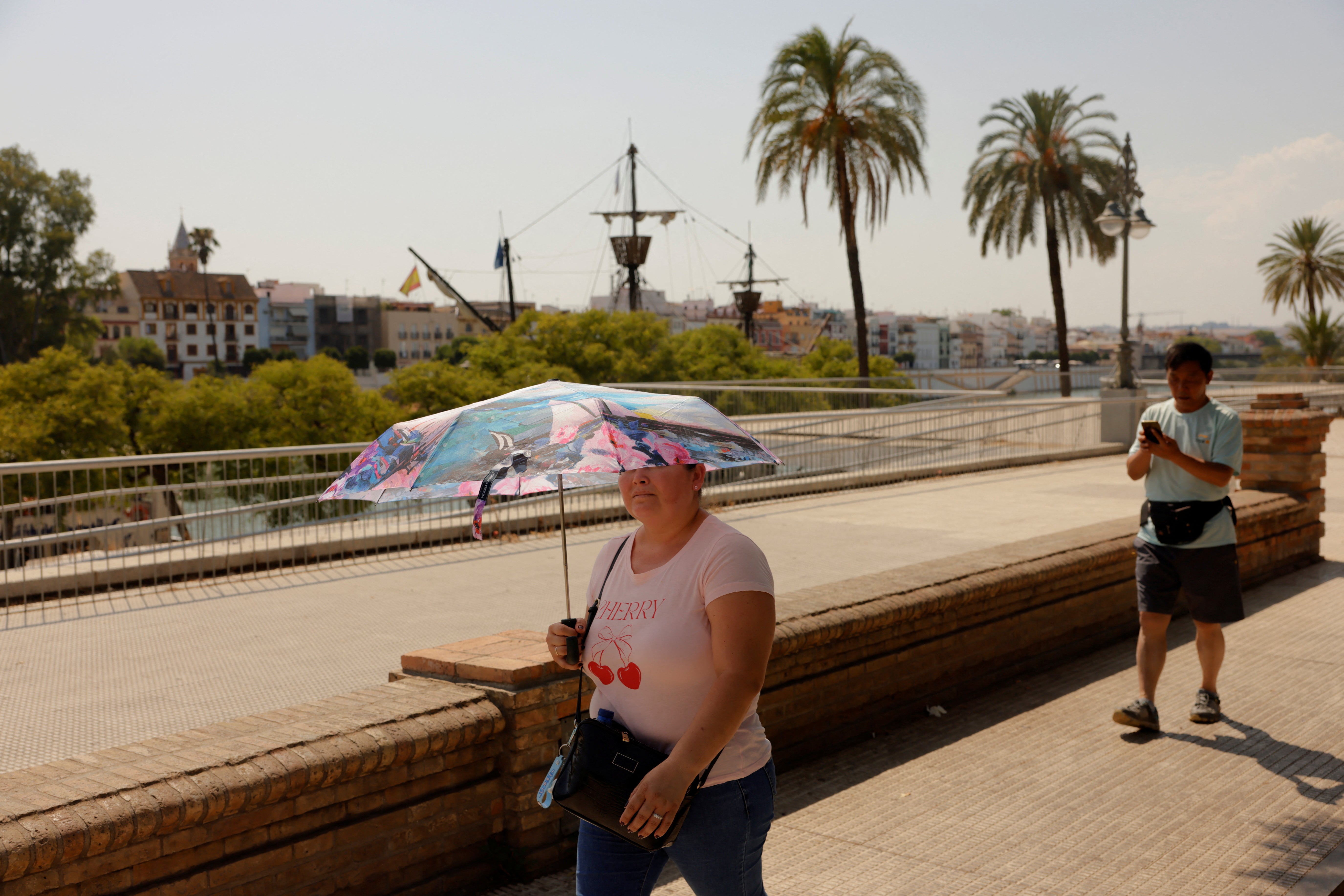A heatwave across Europe has claimed four lives and triggered widespread wildfires, with a nuclear reactor in Switzerland also forced to close amid soaring temperatures.
Spanish officials stated on Wednesday that two individuals died in a wildfire in Catalonia a day earlier. France’s energy minister also reported two heatwave-related deaths, alongside 300 people admitted to hospital across the country.
The extreme temperatures have prompted Italy to issue red alerts for 18 cities, while Turkey is also battling wildfires. Meteorologists have described the current heatwave as "exceptional" due to its unusually early arrival in Europe's summer.
In Spain, the blaze in Torrefeta, Catalonia, devastated several farms and affected an area spanning approximately 40 kilometres (25 miles). While largely contained, authorities anticipate further wind and thunderstorms on Wednesday, posing ongoing challenges.
"The fire was extremely violent and erratic due to storms and strong winds, generating a convection cloud that complicated extinguishing efforts," the fire service said.

Authorities in the Spanish city of Barcelona said on Tuesday they were also looking into whether the death of a street sweeper at the weekend was heat-related.
Spain experienced its hottest June on record this year, and France had its hottest June since 2003, Energy Minister Agnes Pannier-Runacher said.
Weather forecaster Meteo France said red alerts remained for several areas of central France, but that heat was easing in the west, though intense thunderstorms with possible heavy bursts of rainfall were expected in many parts of the east.
Temperature highs were expected around 39 Celsius (102.2°F), with up to 34 C in Paris, and 36 C to 38 C in Strasbourg, Lyon, Grenoble and Avignon.
In Italy, Florence was expected to bear the brunt of the heat with a top temperature of 39 C during the day. Red alerts were issued in 18 cities, including Milan and Rome.

There was a risk of violent and sudden rain and storms, particularly along the central Appennine mountain region and Sardinia and Sicily.
Swiss utility Axpo shut down one reactor unit at the Beznau nuclear power plant and halved output at another on Tuesday because of the high temperature of river water.
Water is used for cooling and other purposes at nuclear power plants, and restrictions were expected to continue as temperatures are monitored.
Scientists say greenhouse gas emissions from burning fossil fuels are a cause of climate change, with deforestation and industrial practices being other contributing factors. Last year was the planet's hottest on record.
Channel crossings by migrants pass 20,000 in record time
UK accused of hypocrisy at landmark UN foreign aid conference
Mapped: Hottest locations in Europe’s 46C heatwave after two die in wildfire
Ukraine war latest: North Korea to send 30,000 troops to support Moscow, claims Kyiv
Award-winning international correspondent launches a new journalism platform
Ukraine looks to jointly produce weapons with allies, while US halts some shipments







